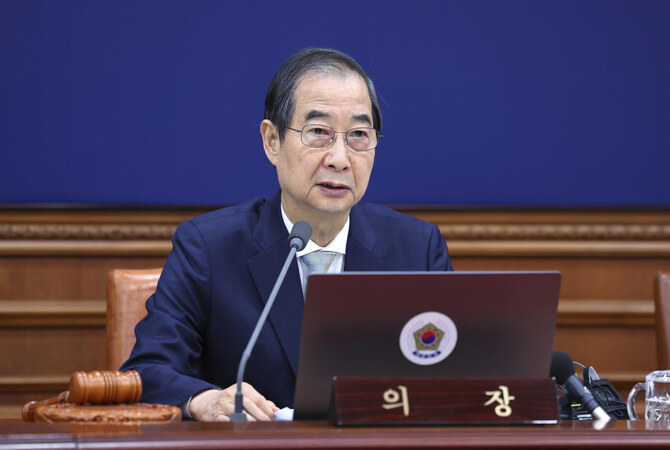South Korea’s opposition lawmakers filed an impeachment motion on Thursday (December 26) against acting President Han Duck-soo. The move follows Han’s refusal to appoint constitutional court judges nominated by the main opposition Democratic Party (DP).
“Han has revealed himself to be an acting insurrectionist, not an acting president”, DP’s floor leader Park Chan-dae said. The impeachment motion is expected to be voted on within the next 24 to 72 hours
The opposition also accused Han of supporting Yoon Suk Yeol’s martial law attempt on December 3. Han had previously apologized for failing to prevent what befell the country. Additionally, Han vetoed several opposition-led bills, including one calling for a special investigation into Yoon’s brief martial law declaration.
Impeachment Process
For the impeachment to succeed, 151 out of 300 MPs must vote in favor. The DP currently holds 170 seats in parliament, while the opposition bloc collectively has 192. Opposition parties had hoped that Han, as the acting president, would not obstruct their efforts and would allow bills to pass. However, he has remained steadfast, further fanning the political unrest.
South Korea’s Political Turmoil
Han took over as interim president after Yoon was ousted earlier this month. Yoon is under investigation for alleged insurrection related to his failed attempt to impose martial law. He has refused to respond to multiple summons, for which investigators could issue an arrest warrant.
Next-In-Line After Han
If lawmakers vote to impeach Han, Finance Minister Choi Sang-mok will be next in line to take over as acting president. Sang-mok took over the role in December 2023. Before this, he served as the Senior Secretary to the President for Economic Affairs in the Office of the President. Previously, he was the 1st Vice Minister of the Ministry of Economy and Finance from January 2016 to May 2017 and held several influential roles within the Ministry of Economy and Finance.






